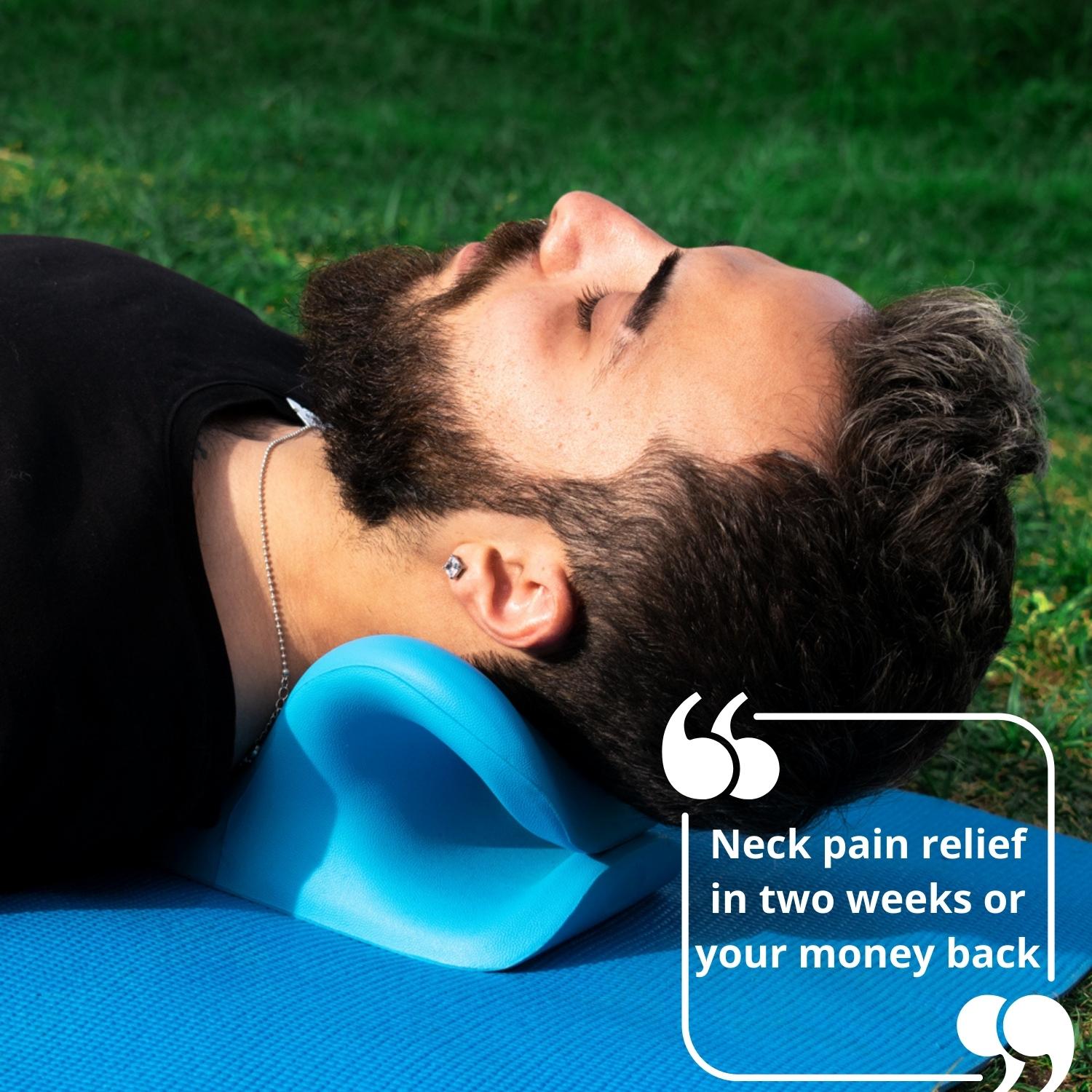Neck Cloud for Cervical Support: Relax and Ease Neck Pain
Neck Cloud for Cervical Support: Relax and Ease Neck Pain
Blog Article
The Influence of Stress And Anxiety on Neck Pain: Approaches for Minimizing Tension and Discomfort
In today's fast-paced globe, it's obvious that anxiety has become a common consider the onset and worsening of neck discomfort. The complex relationship in between tension and muscular tissue tension typically leaves people seeking remedy for the pain that occurs. By discovering targeted strategies intended at decreasing stress and promoting leisure, one can start to deal with the source of neck discomfort and job in the direction of a much more balanced state of well-being. Join us on a journey to untangle the impact of anxiety on neck discomfort and uncover effective methods to ease pain and enhance overall lifestyle.
Understanding Stress-Related Neck Pain
Neck pain is a common complaint that can commonly be connected to stress and anxiety. Stress-related neck discomfort can show up as stress, tightness, or pain in the neck and shoulder area. The connection between stress and neck pain lies in the body's physiological response to stress, which can cause muscular tissue stress and rigidity in the neck muscular tissues. Persistent anxiety can cause consistent neck pain and intensify existing conditions like cervical spondylosis or muscle strains.

Identifying Common Tension Locations
Frequently experienced by people under tension, stress areas in the body can give important understandings into the physical indications of mental pressure. One usual stress area is the neck, where stress and anxiety typically shows up physically. Tension frustrations, stiff neck muscle mass, and limited variety of motion are typical signs and symptoms of stress-related neck tension. The shoulders are one more usual location where tension builds up. Anxiety can create the muscles in the shoulders to tighten, causing pain and discomfort. Additionally, the upper back is susceptible to stress accumulation, specifically in individuals who experience chronic anxiety. Poor stance and prolonged sitting can intensify stress in this area. The jaw is also a common location for stress-related stress, as numerous people clinch their jaw or grind their teeth when stressed. Knowing these usual stress areas can assist individuals recognize the physical indications of stress and take steps to address them before they escalate into persistent discomfort or pain.
Carrying Out Relaxation Techniques
To effectively handle stress-related tension in the body, implementing leisure strategies is vital. Relaxation techniques are beneficial devices for minimizing neck pain triggered by stress and anxiety. Deep breathing exercises can help calm the mind and loosen up strained muscles in the neck and shoulders (neck cloud). Exercising mindfulness reflection can also be advantageous in alleviating stress and advertising leisure. Modern muscle mass relaxation, where you systematically tense and after that kick back different muscle mass groups, can release built-up tension in the neck area. Additionally, tasks like yoga exercise and tai chi integrate both physical motion and relaxation, making them efficient practices for reducing stress and anxiety and neck discomfort. Taking normal breaks throughout the day to stretch and loosen up can stop muscle mass stiffness and stress from building up. By including these relaxation strategies into your day-to-day routine, you can aid take care of tension degrees, minimize stress in the neck, and ease discomfort connected with stress-induced neck discomfort.
Integrating Self-Care Practices
Including self-care techniques is important for preserving general wellness and handling stress-related neck discomfort properly. Participating in normal exercise, such as mild extending workouts or yoga exercise, can aid relieve stress in the neck and shoulders. Exercising excellent stance throughout the day and taking constant breaks from prolonged sitting or screen time can also avoid stress on the neck muscle mass.
Moreover, focusing on appropriate rest and developing a regular rest regimen can contribute dramatically to lowering stress and anxiety degrees and promoting relaxation. Creating a relaxing going to bed routine, such as reading a book or taking a cozy bath, can help prepare the body and mind for relaxed rest. Furthermore, maintaining a balanced diet regimen rich in nutrients and staying moistened can sustain general health and wellness and reduce swelling that may intensify neck pain.
Including mindfulness methods, such as deep breathing exercises or meditation, can aid take care of stress and anxiety and page advertise relaxation. Taking time for oneself, taking part in leisure activities, and establishing borders to protect personal time are additionally crucial aspects of self-care that can add to decreasing stress and alleviating neck discomfort.
Seeking Expert Help
How can people successfully address consistent neck pain that is influencing their day-to-day life and wellness? Seeking specialist help can be an essential step in managing and easing neck pain.
Chiropractors concentrate on spinal adjustment techniques to enhance positioning and lower tension investigate this site in the neck location. Physiotherapists supply targeted stretches and workouts to strengthen muscle mass, boost adaptability, and enhance overall neck function. Orthopedic experts can supply sophisticated clinical treatments such as shots or medical alternatives for extreme cases of neck pain.
Conclusion

Stress-related neck discomfort can show up as stress, rigidity, or pain in the neck and shoulder location. The link in between stress and anxiety and neck discomfort exists in the body's physical feedback to stress and anxiety, which can result in muscular tissue stress and rigidity in the neck muscular tissues. Stress migraines, rigid neck muscle mass, and restricted variety of movement are common symptoms of stress-related neck tension. By incorporating these leisure strategies right into your everyday routine, you can assist manage tension levels, reduce stress in the neck, and ease discomfort associated with stress-induced neck pain.

Report this page